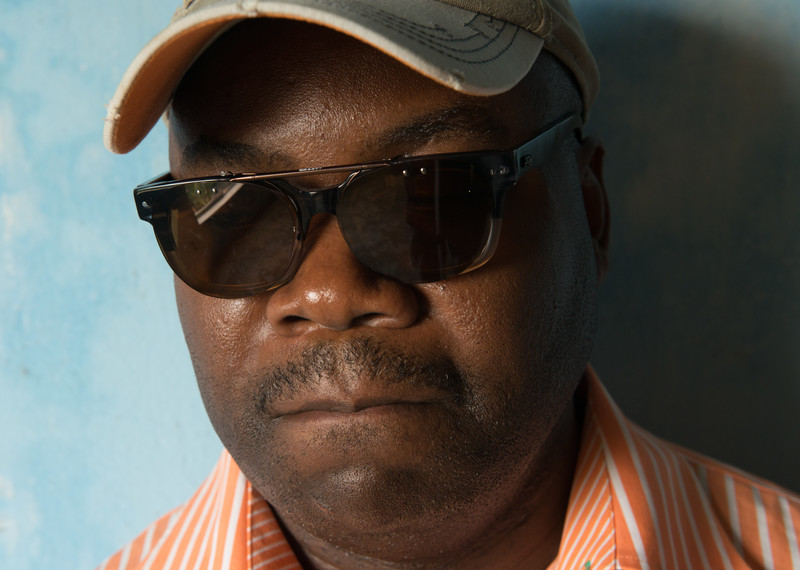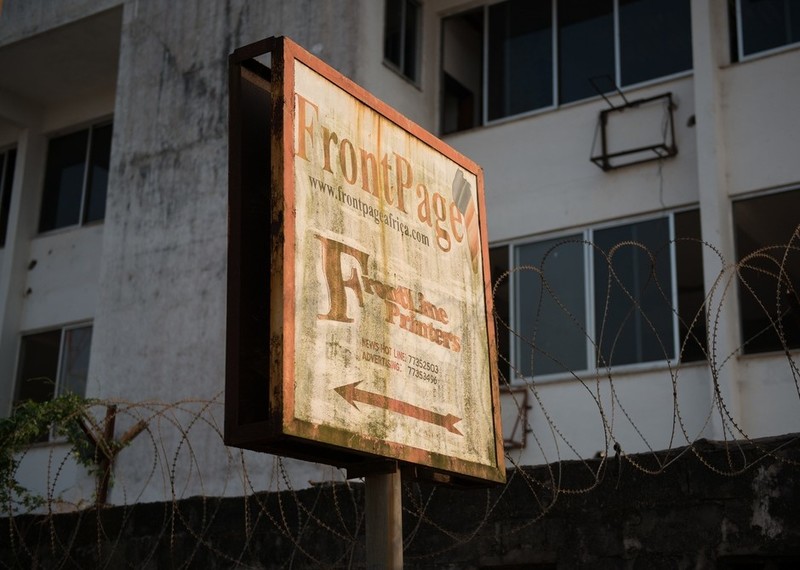By Rodney Sieh – a ‘criminal’ journalist reflects on incarceration at Liberia’s notorious Monrovia Central Prison and a landmark case which could bring changes to Liberia’s laws criminalizing libel.
I could never expect to live to be 5,000 years old and seriously doubt I will ever hold USD$1.6 million cash in my lifetime. But that prison term and fine were the punishment I faced when I entered the notorious Monrovia Central Prison shortly after 6 pm on August 20, 2013.
My incarceration there was interrupted twice due to illnesses ranging from pneumonia to malaria. The prison, built to hold 350 persons, is now occupied by at least 1,200. As many as 10 people are crammed into a small cell, which also includes a built-in toilet and shower in the same space. The stench of urine and faeces makes it impossible for anyone to have any kind of rest without falling ill. At least seven people have died in 2013 alone. Yet, here I was, a journalist, serving time and placed in a cell that included convicted rapists, armed robbers, murderers and an accused coup plotter.
My troubles started in 2010 when a civil law court ordered my imprisonment for refusing to pay a fine of nearly USD$1.6 million in libel damages in a case brought by Liberia’s former agriculture minister, Chris Toe.

I wish I could tell you that I was capable of filing an appeal before the Supreme Court. But in my country, Liberia, a nation founded by freed American slaves, such a desire is mere wishful thinking. Even since before its independence, Liberia has striven to uphold basic freedoms such as a free press. But the reality doesn’t always live up to the dream.
The truth of the matter remains that our quest to introduce investigative journalism in post-war Liberia started a long time ago. Our investigative reports have led to indictments of corrupt officials, cancellation of fraudulent concession agreements, withdrawal of corrupt presidential appointments and a much-heralded chain of emails linking several senior government officials to high crimes and attempts to steal from the government in broad daylight.
What landed me into trouble was coverage in my newspaper, FrontPage Africa, of a report conducted by the General Auditing Commission, bolstered by a letter from the President of Liberia, asking the government audit agency to look into corruption allegations brought on by the minister’s principal deputy. This was followed by another presidential request to investigate the guinea worm financing and the violent outburst at the Guthrie plantation, which led to the death of an individual.
My incarceration and everything associated with it had all the markings of a landmark legal wrangle and was as unconventional as anyone could imagine: multiple illnesses, house arrests and a marathon negotiation process that at one point appeared to be going nowhere.
The most memorable moment came on day eight of my incarceration when I experienced severe dizziness, vomiting and later fainted in my cell. I was whisked under armed guard to the John F. Kennedy Hospital about 1am and in only a matter of minutes, the emergency ward became crowded with family, friends, well-wishers and media peers who had come to see what was going on.
On October 21, the Ministry of Justice ordered that I be placed under house arrest during the rest of the 30 days of “compassionate” leave from prison. Interestingly, an official at the Ministry had taken my passport from me under false pretense, telling me that he needed it to make copies for their files. I have yet to receive the passport back.

The decision to place me under house arrest came two days after the Supreme Court threatened to hold Justice Minister Christiana Tah in contempt for ordering my ‘compassionate leave’ in “defiance” of the court’s earlier decision to jail me for failing to pay damages to the former Agriculture Minister. A member of our legal team was also slapped with contempt charges for allegedly showing disrespect to the court for his role in issuing the ‘compassionate leave’.
Throughout my incarceration, I was always puzzled about the debate over whether my case was actually a private matter between two people or if it was politically motivated. What became evident during my ordeal is that both the courts and some high-ranking government officials were interested in demanding an apology. A lot of people wanted to break my will, through threats and intimidation of prison. This was the bone of contention during several efforts at mediation.
The case officially ended on Monday, 18 November, 2013 when a Civil Law Court judge issued the final ruling in the matter – lawyers for Dr. Toe had notified the court of a settlement in the case.
That I was being treated more or less like a common criminal – held in a cell with hardened criminals in an overcrowded and uninhabitable maximum security prison – speaks volumes to the damage and setbacks this ordeal has had on my life.
My lawyers have filed a petition in the Supreme Court of Liberia challenging the constitutionality of my imprisonment. Now that I am out, it is no longer just about me. If the criminal libel law is not repealed, other journalists could endure similar hardships, or perhaps even worse than what I went through.
Until I go to my grave, I will continue to harbour concerns about the excessive libel damages imposed on me for reporting the findings of a government inquiry on corruption, my jailing, and the closure of FrontPage Africa, an important independent newspaper. All of this has no doubt dealt a blow to press freedom and the fight against corruption in Liberia.
I have no doubt in my mind that I could continue this fight much longer. But the odds were stacked against me and FrontPage Africa. Our reporters and editors have been out of work and the expenses to keep on fighting have been exhausting. Nevertheless, we believe in our hearts and our minds that we have scored a major victory, as we are hopeful that libel will be decriminalized in Liberia.
My greatest fear is that the three branches of government may drag their feet on these burning but critical issues which could make or break the future for journalists in Liberia. My biggest hope is that Liberians and the international community will press our government even further and force them to keep the promises they have made to change these laws.
Doing so will ensure that no other journalist ever has to endure what I have been through or suffer the fate I believe I was destined to suffer to bring much-needed change to our flawed judicial system.
Amnesty International, Global Witness, and Human Rights Watch released an open letter to President Ellen Johnson Sirleaf, asking her to take leadership in seeking the reform of Liberia’s draconian defamation laws, which allowed for the imprisonment of Rodney Sieh and the shutdown of FrontPageAfrica. A new civil defamation legal regime must appropriately balance the individual right to freedom of expression with the government’s obligation to protect its citizens from unjustified attacks on their character and reputations so that cases like the Rodney Sieh case will never be repeated in Liberia.
Read more:
Liberia: Open letter re: Liberia’s defamation laws and the Rodney Sieh case (Open letter, 19 September 2013)Appalling prison conditions in Liberia must be improved (News story/report, 21 September 2011)


